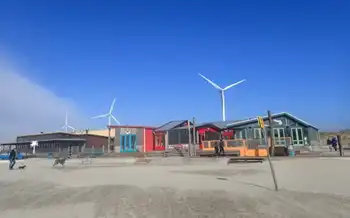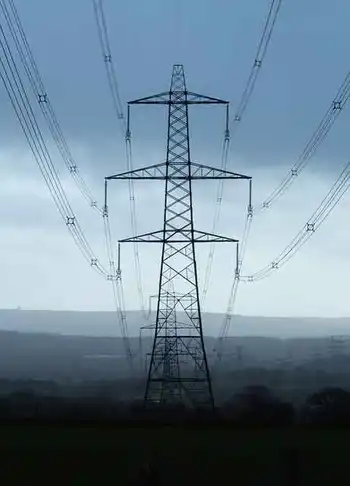Canada, Kazakhstan to share nuclear development
KAZAKHSTAN - Canadian Minister of International Trade Stockwell Day and Kazakhstani Minister of Energy Sauat Mynbaev recently signed a letter of intent as a precursor to a bilateral nuclear power cooperation agreement between the two nations.
Both governments are now working on finalizing the legal text of the pact for subsequent implementation.
Under the cooperation agreement, Canadian firms will gain access to Kazakhstan's civil nuclear sector and will be able to transfer nuclear materials, technology and equipment to Kazakhstan solely for "peaceful, non-explosive purposes." Canada will also participate in uranium extraction and oil and gas exploration in Kazakhstan, providing and servicing pipeline equipment to the latter.
Cameco Corporation, which accounts for 15% of global uranium production, is expected to benefit greatly from the signing of the cooperation agreement. In June 2008, Cameco and state-owned Kazatomprom announced plans to establish Ulba Conversion LLP, a 49:51 joint venture, for setting up a uranium-hexafluoride conversion unit at the Ulba metallurgical facility in Ust-Kamenogorsk, Kazakhstan.
Cameco will also provide the requisite conversion technology for the unit, which will have a capacity of 12,000 tons per year, equivalent to nearly 17% of the global uranium-hexafluoride conversion capacity. A feasibility study for the project, financed by the two joint venture partners, is currently under way and is expected to be finalized this year.
The plant is expected to begin commercial operations in 2014 with an initial capacity of 750 tons per year, increasing to full capacity production by 2018.
In another joint venture, Cameco and Kazatomprom operate the Inkai uranium mine, which has reserves of 141.8 million pounds of triuranium octoxide (U3O8). Test mining operations carried out in 2008 produced 500,000 pounds of U3O8. Commercial production is expected to commence in 2009, and the joint venture is targeting a full capacity annual production of 10.4 million pounds.
The cooperation agreement with Kazakhstan is part of the Canadian government's strategy to boost nuclear trade relations with Central Asia. However, Canada has come under sharp criticism from domestic experts who view the move to sell nuclear technology to Kazakhstan as fraught with huge proliferation risks. Some critics have also expressed concern that radioactive material could be smuggled out of Kazakhstan through shadowy trade routes into Afghanistan.
Countering these arguments, Day said that, with developed nations such as the U.S. and France entering into similar nuclear cooperation deals with Kazakhstan, Canada could not afford to be left out of the race.
According to data provided by the World Nuclear Association, Kazakhstan is home to 15% of the world's uranium. The nation's uranium-mining sector has witnessed considerable expansion in the past decade, with production increasing from 2,000 tons per year in 2000 to 8,521 tons per year in 2008. Kazakhstan expects to produce 14,000 tons of uranium in 2009, which would see it race past Canada and Australia to emerge as the world's leading supplier.
Canada and Australia are expected to produce 11,100 tons and 9,430 tons, respectively, of uranium in 2009. Kazakhstan aims to boost uranium production to 18,000 tons per year by 2010, and to 30,000 tons per year by 2018. The country is also eyeing a global market share of 30% in fuel fabrication by the year 2015.
Prior to his visit to Kazakhstan, Day visited Ukraine and discussed the feasibility of using the CANDU reactor technology developed by Atomic Energy of Canada Limited in Ukraine's nuclear energy expansion program. Ukraine operates more than 15 nuclear reactors with a total capacity of 13,900 megawatts (MW), which address nearly 50% of the country's electricity requirements.
In 2007, total electricity production in Ukraine amounted to 195 billion kilowatt-hours (kWh) from an installed capacity of 52,000 MW. Annual demand for electricity is expected to increase to 307 billion kWh by 2020 and to 420 billion kWh by 2030. As the government is determined to maintain the contribution of nuclear energy to the overall power portfolio, Ukraine is expected to require an additional 15,600 MW of nuclear power generation capacity by 2030.
Related News

RBC agrees to buy electricity from new southern Alberta solar power farm project
CALGARY - The Royal Bank of Canada says it is the first Canadian bank to sign a long-term renewable energy power purchase agreement, a deal that will support the development of a 39-megawatt, $70-million solar project in southern Alberta.
The bank has agreed with green energy retailer Bullfrog Power to buy the majority of the electricity produced by the project to be designed and built by BluEarth Renewables of Calgary.
The project is to provide enough power for over 6,400 homes and the panel installations will cover 120 hectares, the size of 170 soccer fields.
The solar installation is to be built in…




